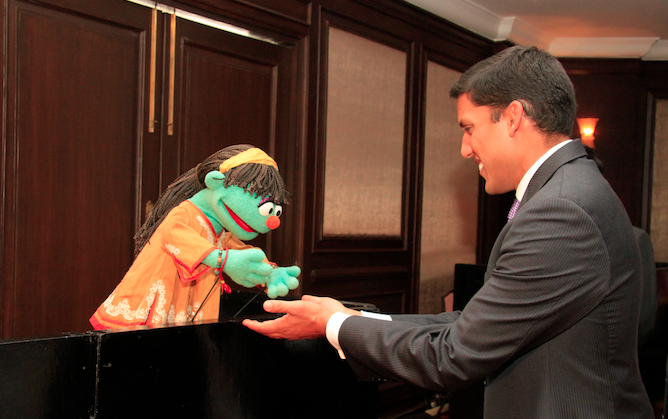Water and sanitation professionals work tirelessly to improve health, promote food security, and boost livelihoods. To further USAID’s knowledge sharing goals, the Water Office holds learning events that present solutions and challenges common to water programs. In Currents, we share the solutions discussed at the events and other venues. Email us at waterteam@usaid.gov if you would like your project to be considered for Global Waters.

Congress Unanimously Passes Water for the World Act
On December 19, 2014, President Obama signed the Senator Paul Simon Water for the World Act into law, following unanimous passage by both Houses of Congress. The Water for the World Act will help to address the needs of the 2.5 billion people who do not have access to sanitation and the 750 million people who still live without safe drinking water.
“The Water for the World Act of 2014 provides a solid platform for USAID to work toward our goal of a water-secure future, free from the diseases caused from inadequate access to clean water and sanitation, where food is available and affordable, and where populations are less vulnerable to the risks of a changing planet,” said USAID Administrator Rajiv Shah.
The Water for the World Act focuses on sending resources to the countries and communities most in need of WASH. It works to ensure that U.S. Government agencies and all other groups currently working on WASH work together to achieve long-term impacts, including WASH programs and other critical measures that address child survival, global health, food security and nutrition, and gender equality. The Act also addresses reviewing WASH projects to increase transparency in reporting.
To read Administrator Shah’s statement on the Water for the World Act, visit USAID’s website.
USAID Announces New WASH Partnerships with India
During a trip to India from November 4-5, 2014, USAID Administrator Rajiv Shah announced several partnerships between USAID and the Government of India aimed at improving water, sanitation, and hygiene.
Dr. Shah announced a new financial commitment of up to $20 million to support India’s efforts to improve water and sanitation. He also announced a new Urban WASH Knowledge Partnership with the Indian Ministry of Urban Development and other key partners such as the Bill and Melinda Gates Foundation. The Urban WASH Knowledge Partnership will share knowledge and best practices in order to demonstrate innovative and scalable models for urban water and sanitation. In addition, Dr. Shah announced USAID’s support for a multi-stakeholder coalition including Unilever, the Federation of Indian Chambers of Commerce and Industry, Sesame Workshop India, Coca-Cola India, McCann Health, and the Jindal Steel and Power Foundation, to catalyze nationwide sanitation and hygiene behavior change. These initiatives support the Government of India in its efforts to extend clean water and sanitation services to all Indians.
"The relationship we have with India - the world's largest democracy – is among the most lasting, effective, and vital partnerships that America currently enjoys," said Dr. Shah. "Together, we are working to unlock opportunity for India's most vulnerable people and pioneer solutions that will help end extreme poverty across the globe."
To learn more, visit the USAID/India website.
USAID Supports the Fight Against Ebola
"Ebola is a horrific disease,” said President Obama at the United Nations in September.
“If ever there were a public health emergency deserving an urgent, strong, and coordinated international response, this is it."
USAID has been a leader in this international response. It activated a Disaster Assistance Response Team, comprised of team members in Liberia, Guinea, Sierra Leone, and Mali, to coordinate planning, operations, logistics, administrative issues, and aspects of the interagency response to the epidemic. It also built and staffed a new hospital in Liberia devoted to treating those afflicted with the disease.
The Agency’s WASH programs have been instrumental in preventing the spread of the disease. Ebola is spread through bodily fluids such as urine and excreta. Therefore, ensuring uncontaminated water supply and proper disposal of waste, along with encouraging the widespread adoption of hygiene behaviors such as handwashing, are essential if the epidemic is to be contained. USAID supports a number of programs throughout West Africa that bring safe water and sanitation to millions.
USAID is also identifying and supporting innovations that will help treat and prevent the spread of disease and protect health workers through Fighting Ebola: A Grand Challenge For Development. The competition invited the general public to submit proposals for innovative solutions to address the epidemic. Announced in December 2014, the activities selected for support include healthcare worker protective suits, a topical antiseptic that protects against pathogens, and a spray-on barrier that kills and repels microbes. They will receive funding and support from USAID to test the innovations and ensure readiness for field deployment.
To learn more, visit USAID’s Ebola website or join the Ebola Grand Challenge mailing list.







Comment
Make a general inquiry or suggest an improvement.